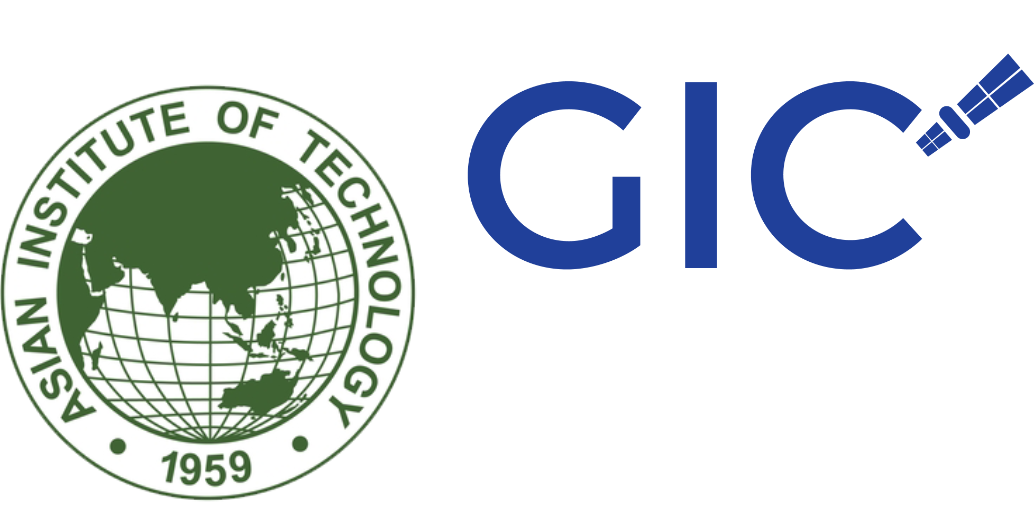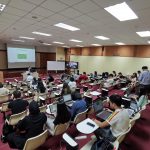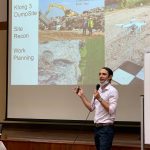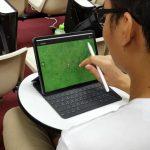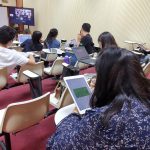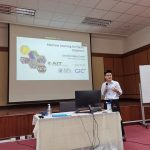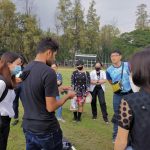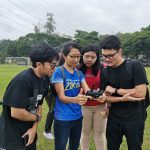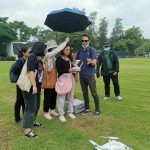
GIC led two lab sessions on innovative macro plastic waste sampling techniques for AIT’s Marine Plastics Abatement (MPA) Masters Program on October 27 & 30, 2020.
GIC senior research associate Frank Yrle introduced MPA students to unmanned aerial vehicles (UAV) as data collection tools and explored recent case studies in which UAV were used to study beachside plastic waste. These concepts were put into practice during a lab exercise where students identified plastic waste from UAV imagery for varying altitudes and waste sizes. As it was a web-based activity, students present in class and those attending virtually from their home countries were able to participate. Collective results were displayed in real-time and served as a basis for a follow-up discussion with GIC’s Associate Director Dr. Kavinda Gunasekara.
An outdoor session afforded MPA students the opportunity to have hands-on time operating a multirotor UAV. Students practiced basic manual maneuvers and image capture under the supervision of licensed UAV pilots including Mr. Rajitha Athukorala from GIC.
GIC research specialist Dr. Dan Tran initiated a discussion on applications of machine learning for plastic waste identification. Following a quick introduction to machine learning principles, Dr. Tran exhibited GIC’s current progress using deep learning to identify macroplastics from 360° camera imagery.
The GIC-led lab sessions served as a component of Identification and Collection of Marine Plastic Waste (ED89.04), a requisite course for AIT’s MPA Masters Program.
The MPA Masters Program is a new offering at AIT from the Environmental Engineering and Management Program’s Department of Energy, Environment, and Climate. MPA launched in August 2020 with a focus on management of wastes, recovery of marine litter, innovation, and empowerment. Follow this link for more information on the 1-year MPA Masters Program.
